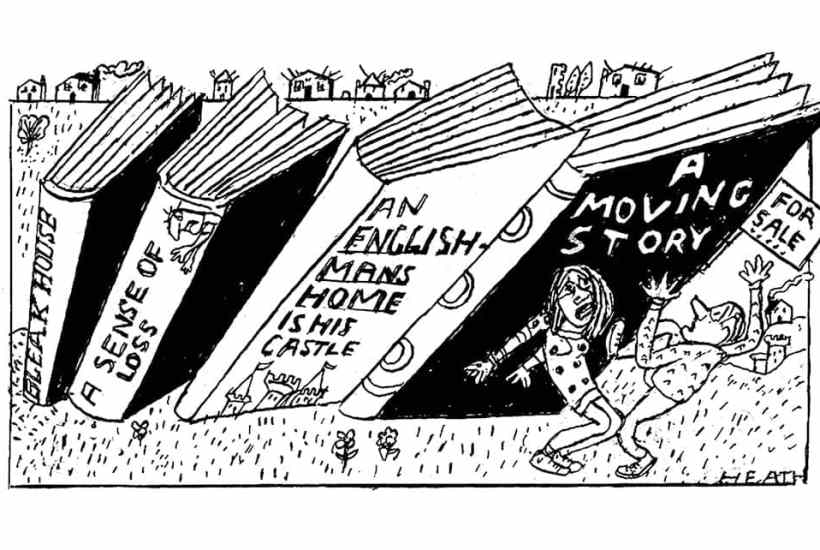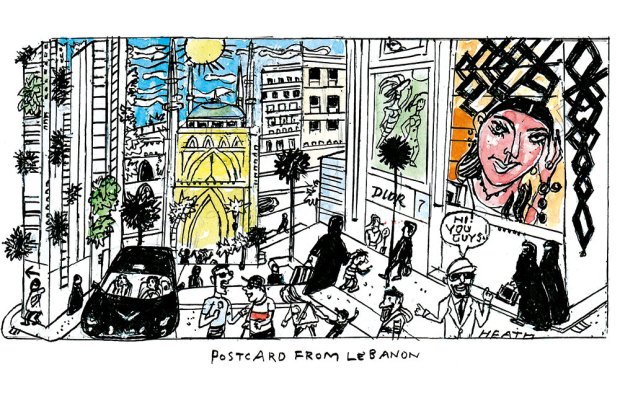A dispiriting week. Three months ago, skips arrived, into which were cast the detritus of a decade. Charity shops were donated so much that they began to wave us away. Family welcomed furniture while, oddly, refusing to accept their own toys, clothes and school photographs which had been stored with us ‘temporarily’. Book collections were culled because the new house is much smaller. But hey, we had sold the dearly loved house, whose surrounding garden, meadows, trees, pond and abundant wildlife I will miss so much – and, even better, to enthusiastic, trustworthy buyers whose dream home it was. Apparently. Because on the day before exchange of contracts, they pulled out. Solicitors report that this, and other bad behaviour, is now happening frequently. Friends had the house they thought was theirs whipped from under their feet; others, like us, had their ‘sold’ one handed back the night before moving. Do people no longer have any scruples about breaking their word? And so we start again, stressed, distressed and exhausted, unpacking dozens of crates to make the place look smart again. Everyone agrees we should adopt the Scottish system of house-selling. Why haven’t we?
‘May you live in interesting times.’ Yes, and interesting weather. My corner of north Norfolk has its own microclimate. Ten miles away, you drive across an invisible line in the road, on one side of which it will be raining; on the other, not. It often happens with fog too, the same line being where a dense sea fret peters out. Thunderstorms will rage here but not over the hill, navy blue clouds mass forbiddingly to the west, before veering away as we sit in sunshine. Norfolk is England’s driest county and famous for its big skies. Outside the conurbations, we have black velvet ones glittering with stars on clear winter nights. In summer on the coast, if you’re very lucky, you may see a watered-down version of the Northern Lights.
Weather helps to form our characters. If we grow up in landscapes where it is unusual or dramatic, those places draw us back for the rest of our lives, as north-east England weather draws me, and as a friend only feels fully himself back in his mountainous Italy, with its Wagnerian storms. I had packed my Thomas Hardy novels but dug back in the box just now to retrieve The Return of the Native, which portrays a community shaped in body, mind and spirit by the idiosyncratic landscape and weather of Wessex’s Egdon Heath. If you haven’t read it, please do. It is magnificent and, as well as bestowing literary riches, it will help you better appreciate interesting weather.
Moving house. Finding forgotten treasures. Unbelievably, from 50 years ago, letters from Christopher Isherwood and Terence Rattigan about my first world war novel (Strange Meeting). Even more unbelievably, I opened To the Lighthouse and a postcard fluttered out. It is handwritten in violet ink by Virginia Woolf to a friend, cancelling lunch. How did it get there? Where did it come from? I know I write ghost stories, but still.
I always say to the first printed copy of my books: ‘Off you go, to seek your fortune.’ They sometimes find it in quite unexpected ways. I did not remotely imagine when I wrote the novella A Kind Man that it would become an opera, but ten years ago the composer Jonathan Finney read it and it spoke to him in that very personal way which books sometimes do. This week, his opera based on my novel has premiered in a production by New Palace Opera at London’s Hoxton Hall. It is very beautiful and works wonderfully in a way I could never have envisioned. The experience of watching someone else take over your book and recreate it in another form is always exciting. That surprises some, who – especially when the new genre is a film – commiserate because the adaptation ‘ruined the book’. Of course it didn’t, the book is still there for all to read and quite unchanged. That is part of the miracle. In the 18th century, Nahum Tate re-wrote King Lear, giving it a happy ending, which might have been fine, had he not then tried to have all productions of Shakespeare’s original banned. Now that is a bridge too far. Mind you, sans Gloucester’s blindness and Cordelia’s death, I might be able to face seeing the play again.
Finally, a word about the Platinum Jubilee. On all these big royal occasions, I gaze in wonder and admiration at the immaculate military presentation and precision, on Horse Guards Parade and in the sky, with planes screaming over the Palace at precisely the planned minute – nay, second. Of course, weeks of drill and rehearsal and attention to detail are how it’s done, but I am convinced there is also a touch of miracle or magic, every, every time.
Got something to add? Join the discussion and comment below.
Get 10 issues for just $10
Subscribe to The Spectator Australia today for the next 10 magazine issues, plus full online access, for just $10.
You might disagree with half of it, but you’ll enjoy reading all of it. Try your first month for free, then just $2 a week for the remainder of your first year.















Comments
Don't miss out
Join the conversation with other Spectator Australia readers. Subscribe to leave a comment.
SUBSCRIBEAlready a subscriber? Log in